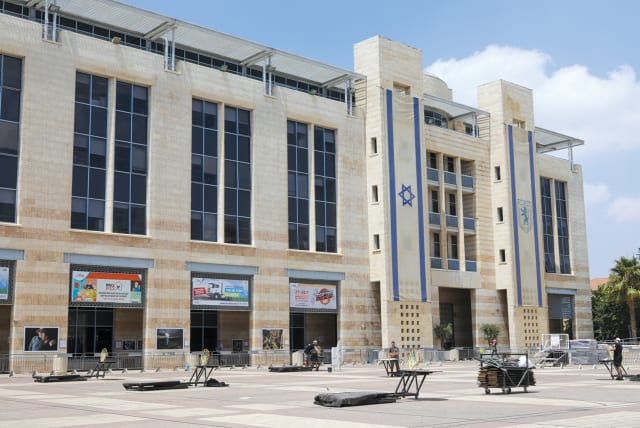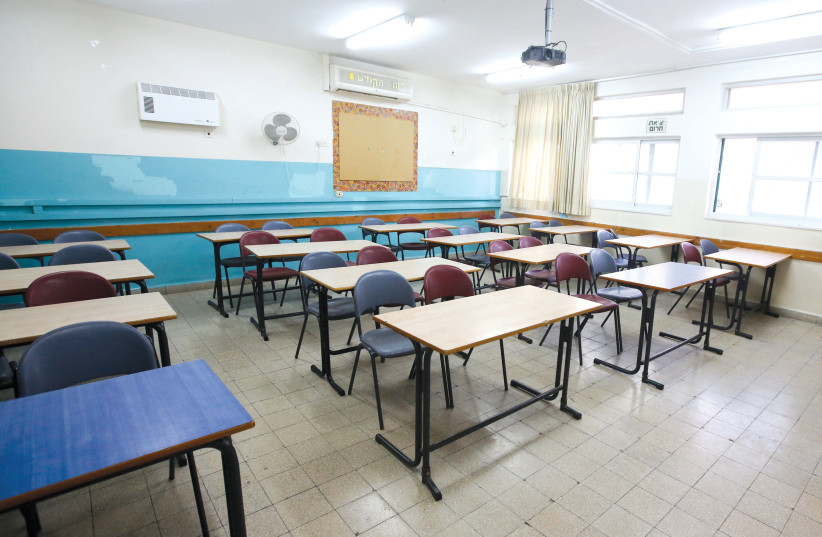Most Israelis trust local government over Knesset - survey

A majority of Israelis think local municipalities should be given more authority to better heal the divisions in Israeli society.
A majority of Israelis from all parts of society support giving more power and authority to local municipalities at the expense of the government in order to avoid the spark of a culture war. This was reported in a new broad survey commissioned by the Israeli Movement and conducted by the Geocartography Knowledge Group.
According to the survey's results, 70% of Israeli citizens see local municipalities as entities that are more attentive to their needs and that work on their behalf compared to the centralized government.
Just 16% of people prefer the government, and they are mostly young people under the age of 34 with low income and who voted for the current coalition.
Still, even among these demographics, local municipalities still rank first. Seventy-six percent of the general public supports expanding local municipalities' powers, and this comes from not just 83% of those who voted for the previous government, but also 70% of those who voted for the new one.
The Israeli Movement is a civil organization with the aim of strengthening citizens' influence, helping train and fostering local leadership that actually listens to residents and which sets up think tanks to solve problems. From this survey, it seems that the way to solve the divisions in the tribalized Israeli society is through local municipalities and authority over education.
Sixty-five percent of all Israeli parents support expanding local municipalities' authority to manage the school curriculum. This is coming from 74% of secular Israeli parents and 75% of people who voted for the previous government. But it also includes 61% of traditional non-denominational Jewish parents, 48% of religious Jewish parents and 55% of those who voted for the new government.
Regarding public transportation on Shabbat, 60% of Israelis want each municipality to decide on the issue within their jurisdiction. Just 33% support the idea that the government has the sole authority to make this decision. This is coming from 75% of secular Israelis but also 58% of traditional Jewish Israelis and 29% of religious Israelis.
What do Israeli parents think about changes in education and imposing religious values?
"We made it clear to everyone on the regional councils and the schools – if there is any change in the educational content for children, there will be war," said Tali, a mother of three from a Moshav in the center.
According to Yaniv, an IDF infantry officer and father of two in Modi'in, "We have a strong municipality and we expect it to keep the image of our education and city intact, otherwise, people will leave.
"I won't stay in a place where my taxes fund a halachic state. They should all do reserve duty [in the IDF]."
Omer and Keren, parents of three from Haifa, have already decided to leave.
"I was very close to traditional Judaism, but it's over now. The nationalist Right and the ultra-Orthodox have destroyed Judaism," Omer said. "Israel is losing its liberal, secular and democratic image and I want my children to have other options."
Seventy-eight percent of the general public feels that the Israeli government's conduct only further inflames the divisions in society. This comes from 87% of those who voted for the "change government," but also 69% of those who voted for the new government. A further 35% said that local municipalities have the power to build bridges between the different sectors in Israeli society, especially those with high education and income.
Only 16% of people thought the Knesset could do it.
"This survey reinforces our belief that we need to adopt more of the conclusions of the 2005 Dovrat Committee and push for a reform to decentralize authority in the education system," said Israel Movement CEO Nati Birman Manoim.
"This way, each local municipality can advocate a plan suitable for the people living there – and we'll avoid imposing values and inflaming unnecessary public disputes along the way."
Jerusalem Post Store
`; document.getElementById("linkPremium").innerHTML = cont; var divWithLink = document.getElementById("premium-link"); if (divWithLink !== null && divWithLink !== 'undefined') { divWithLink.style.border = "solid 1px #cb0f3e"; divWithLink.style.textAlign = "center"; divWithLink.style.marginBottom = "15px"; divWithLink.style.marginTop = "15px"; divWithLink.style.width = "100%"; divWithLink.style.backgroundColor = "#122952"; divWithLink.style.color = "#ffffff"; divWithLink.style.lineHeight = "1.5"; } } (function (v, i) { });

